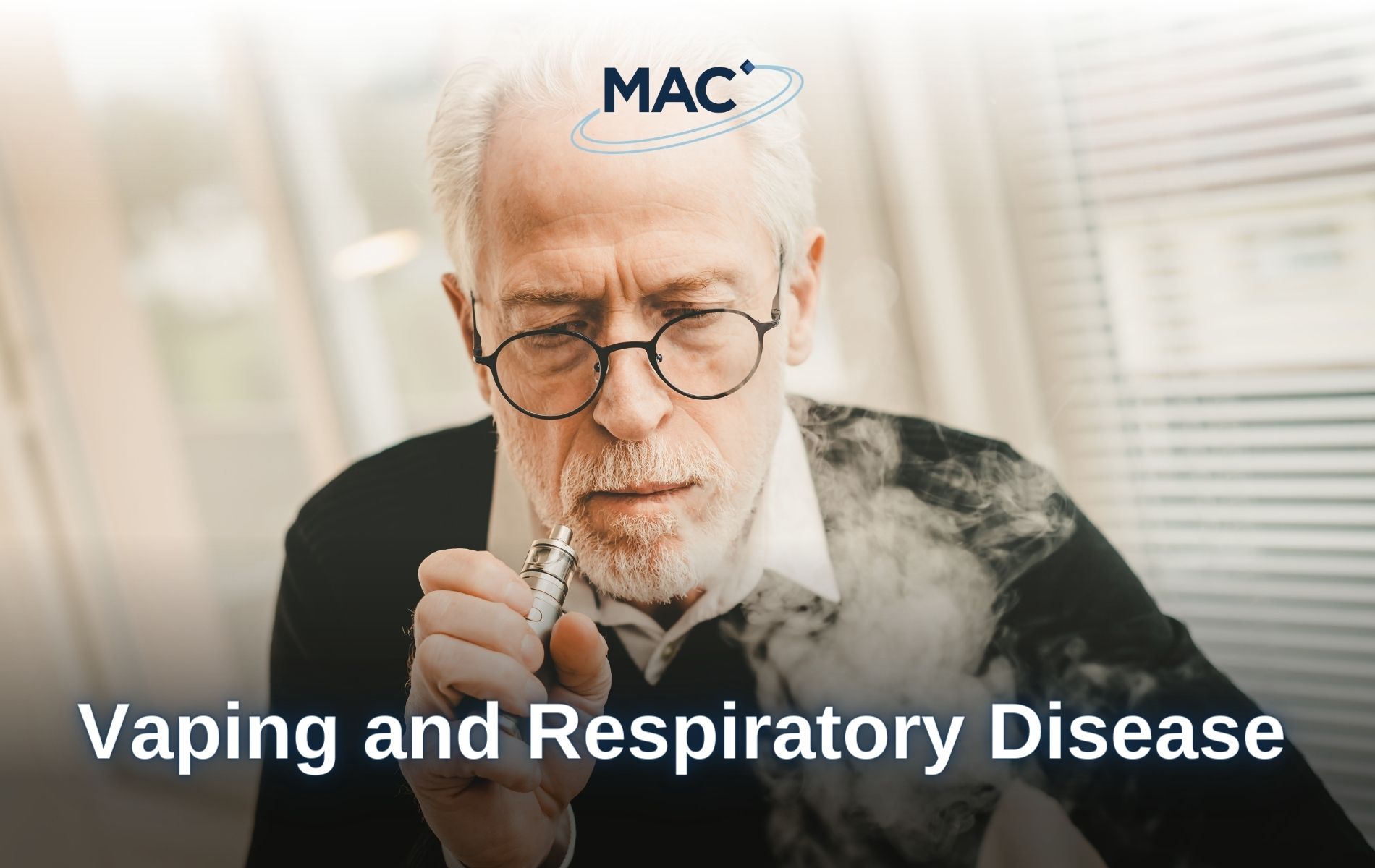In recent years, vaping has gained popularity as a seemingly harmless alternative to traditional tobacco smoking. With enticing flavours and the perception of reduced harm, many have embraced vaping. What was initially believed to be a safer option, however, may not be as benign as once thought.
In research conducted in 2022 by the Office for Health Improvement and Disparities, it was reported that 8.6% of 11-18-year-olds partake in occasional or regular vaping, doubling the number that was reported in 2021. It was also reported that up to 3.2 million adults vape in the UK and that vaping products remain the most common aid used by people to help them stop cigarette smoking1.
Although in the short and medium term, vaping poses a small fraction of the risks of smoking, emerging research indicates that vaping can irritate the lungs and could potentially increase someone’s chances of developing severe respiratory conditions, including Idiopathic Pulmonary Fibrosis (IPF).
Idiopathic Pulmonary Fibrosis (IPF) is a chronic and progressive lung disease characterised by the scarring of lung tissue. It primarily affects older adults and restricts their ability to breathe, leading to severe respiratory distress and reduced quality of life. The British Thoracic Society2 estimates that 30,000 people in the UK live with IPF, and the treatment options for the condition remain limited.
The respiratory system is designed to protect our lungs from harmful substances, and when our lungs are irritated over long periods of time, respiratory issues can emerge. Although vaping devices do not contain cancer-causing tobacco like cigarettes do, there are minor occurrences of potentially harmful chemicals as well as side effects such as throat, lung, and mouth irritation. For some individuals, the irritation may be temporary, but for others, it could potentially lead to more severe respiratory conditions.
Dr Sandy Connell, Medical Director at MAC Clinical Research, has shared the potential risks of long-term vaping. She said: “Vaping has been linked to lung inflammation, which is connected to chronic lung disease. Although often seen as a safer substitute for smoking, vaping is not without risks. Ceasing vaping will enhance your blood circulation and initiate the healing process in your lungs.
“It also has the potential to exacerbate other lung conditions such as COPD in those who are living with this condition which is very common amongst tobacco smokers.”
The charity Cancer Research UK only recommend vaping or using e-cigarettes as a method of helping to stop smoking due to their addictive component, nicotine. The charity recommends that if you have never smoked, you shouldn’t use vapes3.
As vaping increases in popularity among young people and adults, it’s important to acknowledge the potential risks it could have to our lung health and it’s potential in contributing to the increase of debilitating conditions such as IPF.
It’s vital that new treatments are developed for IPF. According to research, without treatment, half of those living with IPF will pass away within three years of diagnosis4. There is an urgent need for new treatment options for IPF, MAC Clinical Research are testing a new investigational once-a-day tablet for the treatment of cough associated with IPF, but we need the help of volunteers to participate in this clinical trial. If you are at least 40 years of age, a non-smoker and have a persistent cough with a diagnosis of idiopathic pulmonary fibrosis, MAC Clinical Research would like to hear from you.
If eligible, you can receive up to £610 plus travel expenses or transport to clinic, as well as a full health check-up. If you decide to participate your GP will be fully informed and you will be closely monitored by our research doctors and nurses.
The study is running at our clinics in Greater Manchester, West Yorkshire (Leeds), South Yorkshire, and Merseyside (Liverpool). To find out more and register your interest, you can visit our IPF research page.
1 Office for Health Improvement & Disparities – Nicotine vaping in England: 2022 evidence update main findings
2 British Thoracic Society – BTS ILD Registry Annual Report 2020: a summary of the UK IPF Registry for the general public
3 Cancer Research UK – Is vaping harmful?
4 European Respiratory Review – An earlier and more confident diagnosis of idiopathic pulmonary fibrosis






